Nikon claims its teleconverters don't degrade image quality. I put them through our lab in search of the truth
Are Nikon's Z-mount teleconverters really without compromise? We've put them through our lens lab to find out
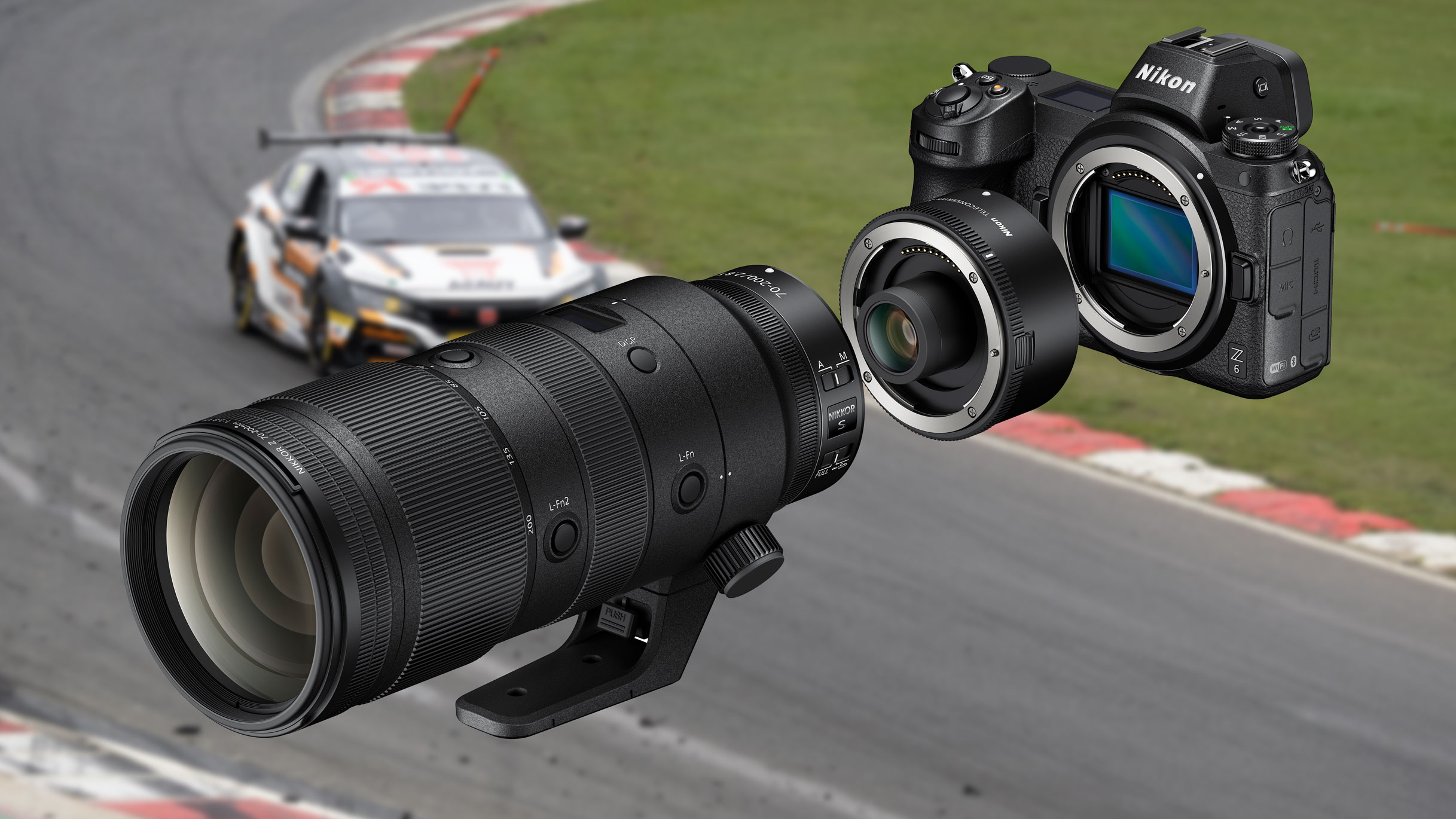
Back in October we reported on a bold claim made by a representative of Nikon Japan about Nikon's Z-mount teleconverters. During a conversation between the Nikon rep and the Japanese Kakaku.com Magazine, the (translated) claim was made by Nikon that "by taking advantage of the high descriptive power of the master lens. Image quality will not be degraded." [when using a Z-mount teleconverter].
Check out our original report for a detailed explanation of why we were sceptical of such a claim, but to sum up our thoughts: wherever extra lens elements are used to magnify the image of a host lens, any optical flaws in that host lens will also be magnified, therefore degrading the image quality of the recorded image. Since no lens is optically perfect, the assertion that a teleconverter will not degrade image quality is fundamentally inaccurate.
Now, it's all well and good picking apart the theory of such a claim, but there ain't no substitute for actually testing it with a real lens and the very teleconverters in question, so that's exactly what we've done.
Our resident lens guru, Matthew Richards, has taken the time to put both of Nikon's Z-mount teleconverters through their paces out in the field (check out his full reviews), testing them with a Nikon Z 70-200mm f/2.8 VR S lens mounted to a Zf body. I have also tested the very same teleconverters with the same lens/body combo in our photo testing lab, to quantify the exact impact the teleconverters have on image quality, so we can definitively dismiss/validate Nikon's claim.
And the results are.... well, mixed. I was expecting a reduction in image sharpness across the board, with both the Z-TELECONVERTER 1.4x, and likely more so with the Z-TELECONVERTER 2x, as greater magnification should further reduce sharpness. However, while this is true to an extent, things definitely aren't that simple.
Read more:
Nikon Z Teleconverter TC-1.4x full review
Nikon Z Teleconverter TC-2.0x full review
Get the Digital Camera World Newsletter
The best camera deals, reviews, product advice, and unmissable photography news, direct to your inbox!
Center-frame sharpness
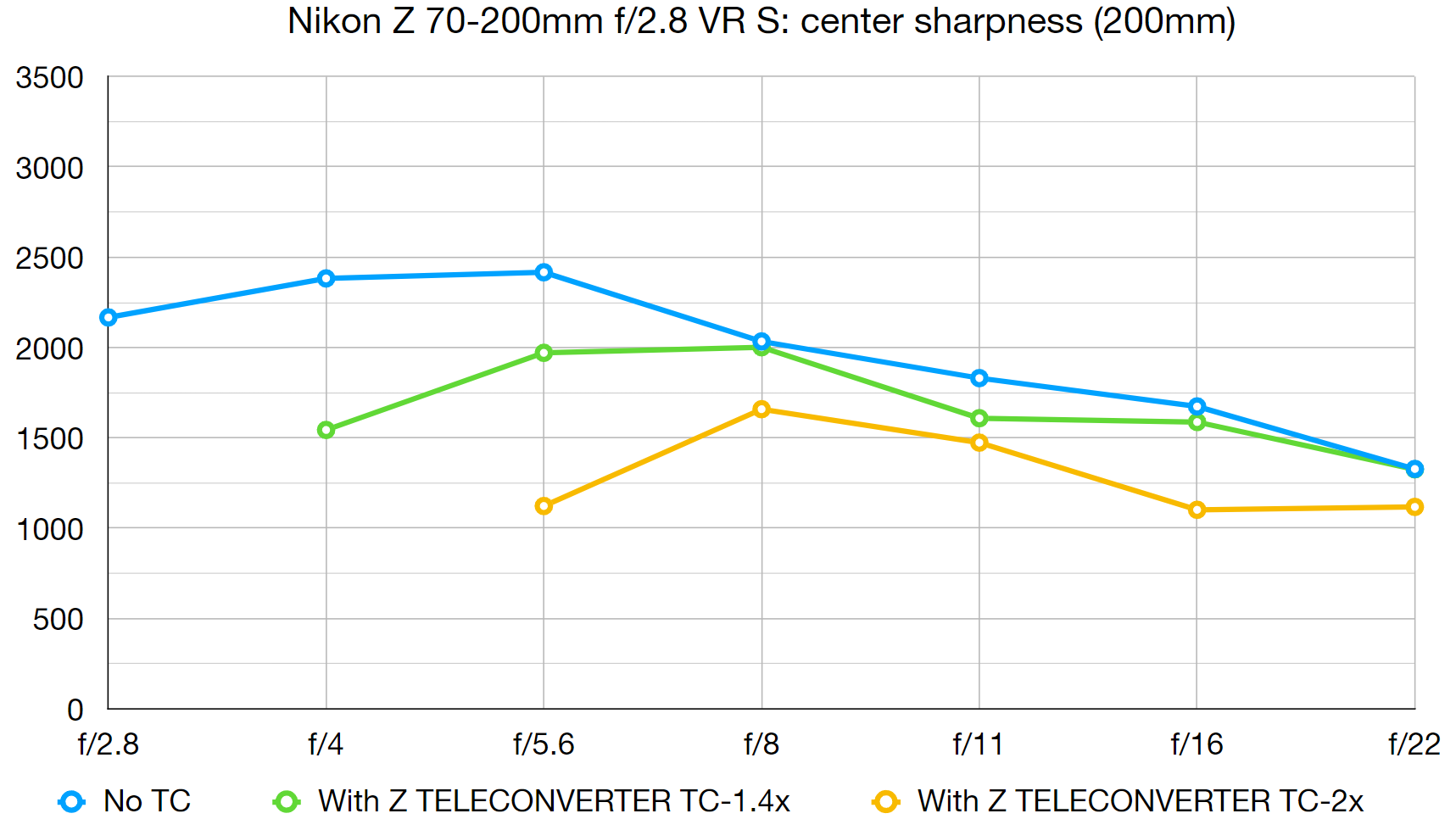
In terms of outright sharpness in the center of the image frame, the 2x teleconverter does have a negative effect, especially at the maximum f/5.6 aperture (remember that any 2x teleconverter will reduce the maximum aperture of the host lens by 2 f/stops, so here f/2.8 is cut to f/5.6). Stop down and the sharpness reduction is less noticeable, but it's there nonetheless. However, switch to the 1.4x converter and, while large-aperture sharpness is reduced, the converter makes surprisingly little difference at narrower apertures.
Corner sharpness
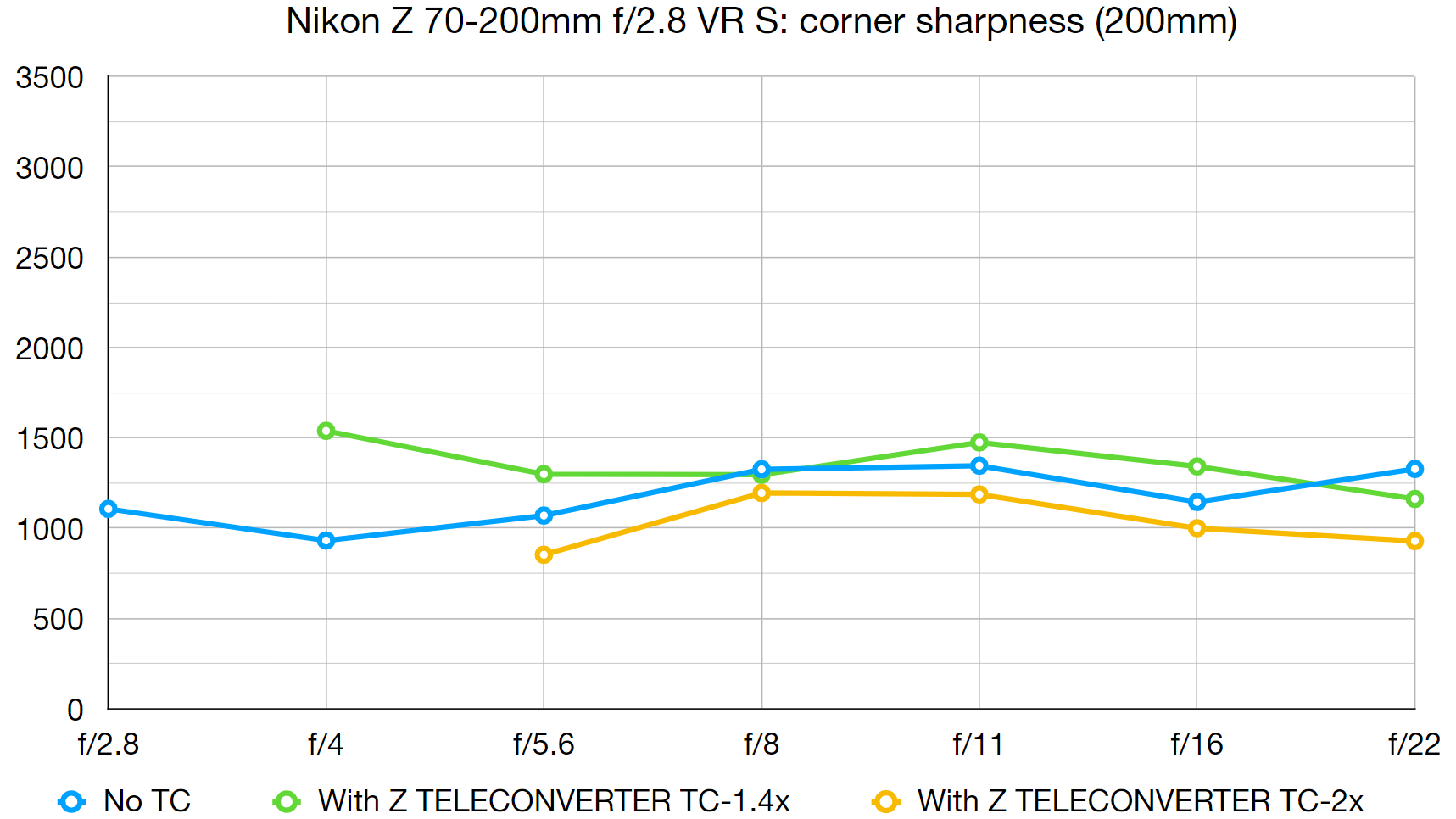
It's in the corners of frame where things get surprising. While there is a small sharpness reduction throughout the aperture range when using the 2x converter, it's barely enough to notice in real world shooting. Switch to the 1.4x converter and corner sharpness is actually improved when the converter is fitted, by as much as 50% when shooting at f/4. Quite an achievement.
Fringing
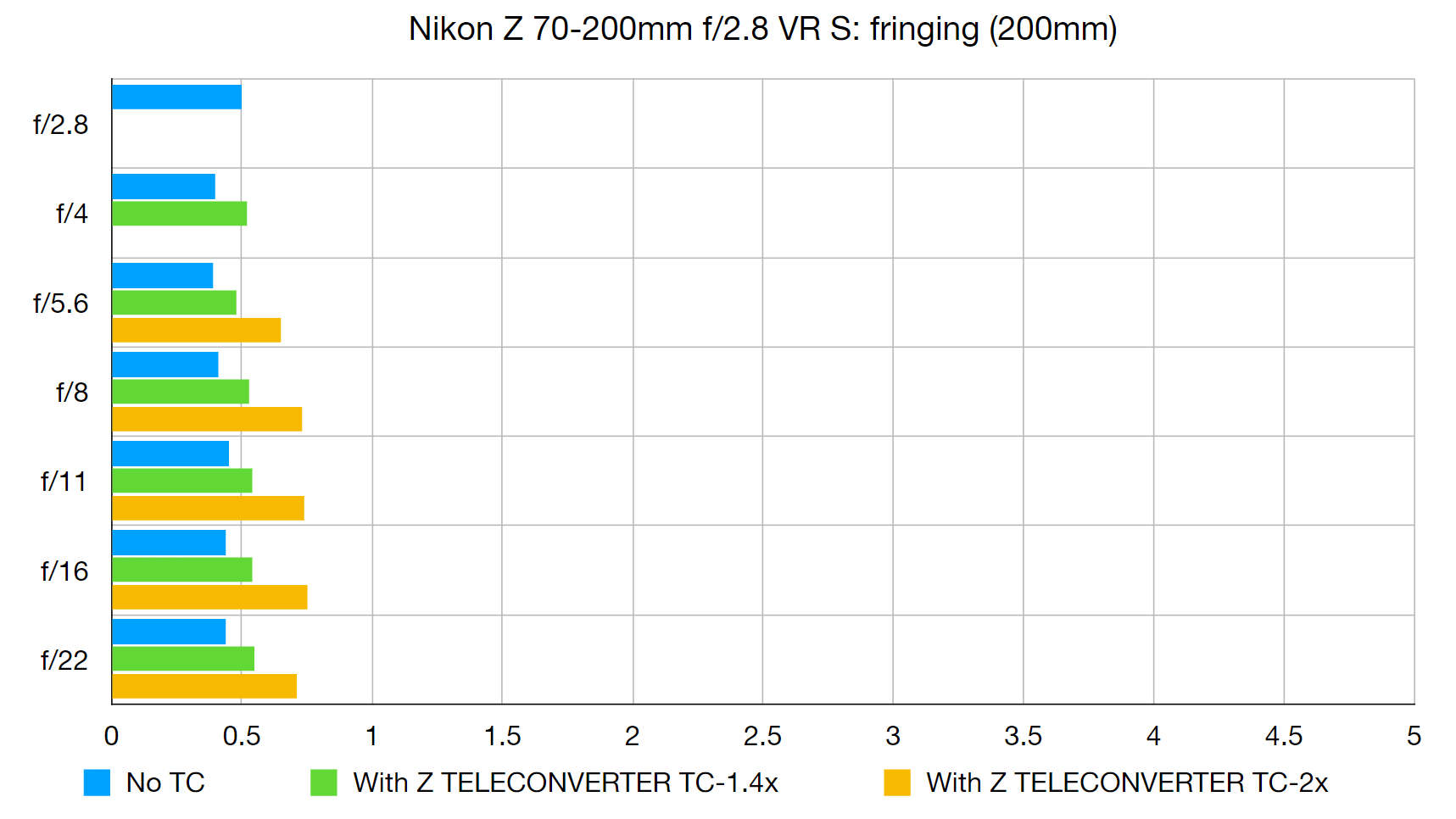
While both teleconverters technically produce extra chromatic aberration when compared to the results from the host lens alone, the difference is negligible, especially when using the 1.4x converter. Even with the 2x converter fitted, levels of fringing are still below what would be apparent during real-world shooting.
Distortion
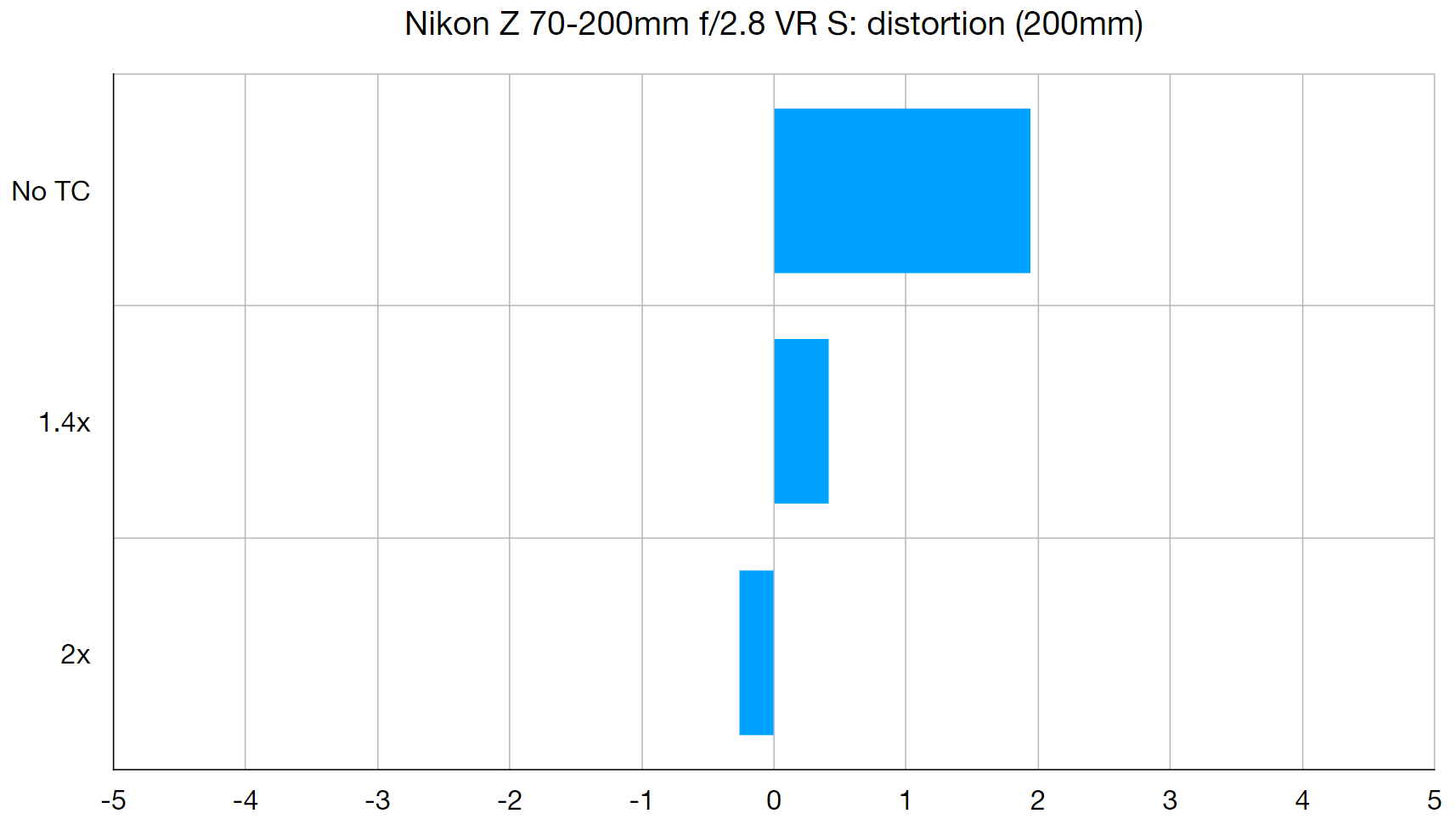
The most compelling benefit that Nikons Z teleconverters have on image quality is how they manage to reduce image distortion in the host lens. With no teleconverter fitted, the Z 70-200mm f/2.8 VR S produces moderate but noticeable pincushion distortion at 200mm. But add the 1.4x converter and this is almost eliminated. Switch to the 2x converter and things transition into slight barrel distortion, but it's entirely negligible.
Conclusion
So was the Nikon representative right to say that Nikon's Z teleconverters will not degrade image quality? Strictly speaking, not entirely, as sharpness at least in the central region is reduced by both converters, and fringing is increased. However, if we're measuring using the naked eye in real-world applications, the claim isn't far off being true, especially when referring to the 1.4x converter. What this particular teleconverter takes away in terms of central sharpness, it repays with its increase in corner sharpness. Factor its tiny increase in fringing, plus the beneficial effect it has in reducing image distortion, and on balance it could justifiably be claimed that the Nikon Z TELECONVERTER TC-1.4x really doesn't degrade image quality (or at least not with our test lens and body combination).
Ben is the Imaging Labs manager, responsible for all the testing on Digital Camera World and across the entire photography portfolio at Future. Whether he's in the lab testing the sharpness of new lenses, the resolution of the latest image sensors, the zoom range of monster bridge cameras or even the latest camera phones, Ben is our go-to guy for technical insight. He's also the team's man-at-arms when it comes to camera bags, filters, memory cards, and all manner of camera accessories – his lab is a bit like the Batcave of photography! With years of experience trialling and testing kit, he's a human encyclopedia of benchmarks when it comes to recommending the best buys.

